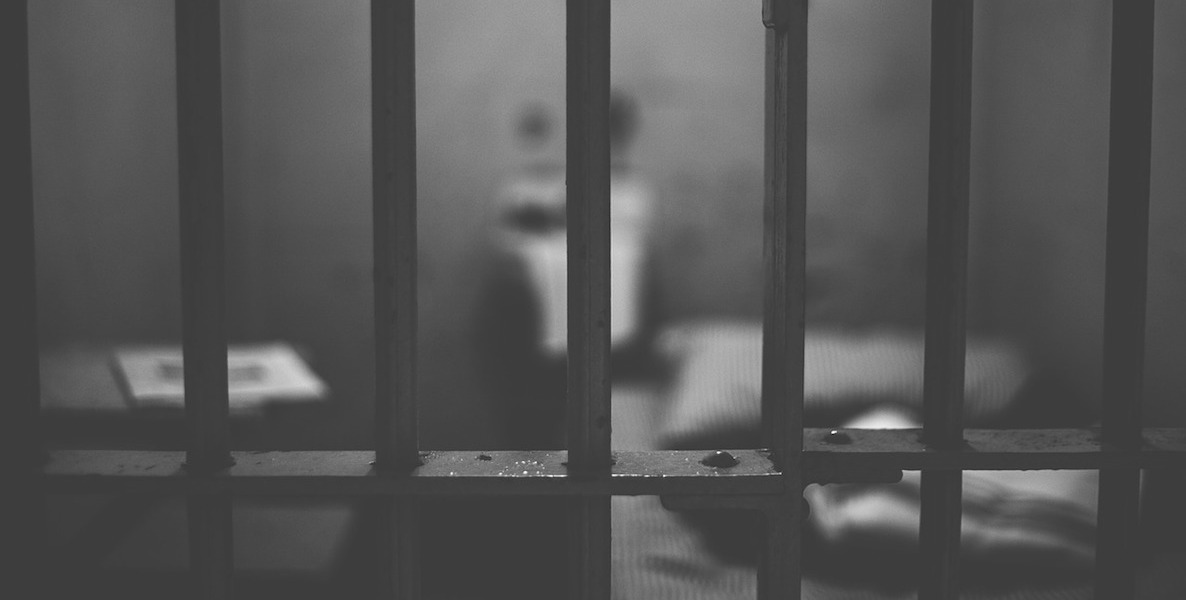We all know that the U.S. Constitution guarantees every defendant a right to counsel and to a fair trial. Yet, in reality that right is often rationed. Those with financial resources receive the best justice money can buy, while the poor are left with a “McJustice” system—the courts as a fast food restaurant chain, valuing expediency over quality, resulting in the vast majority of cases ending in plea bargains.
Under the 1963 U.S. Supreme Court case Gideon v. Wainwright, states are required to provide adequate and effective legal representation to defendants in criminal trials who cannot afford an attorney. Pennsylvania is the only state that has forced county governments to take on that responsibility—but without providing the necessary funding to make it happen. As a result, counties that are strapped for cash are cutting public defenders offices.
But now comes a ruling that could change all that. For the first time, a court in Pennsylvania found that the clients of public defenders have a right to sue counties for failing to adequately fund their public defender offices.
![]() In Kuren v. Luzerne County, the Pennsylvania Supreme Court said: “We recognize for the first time in Pennsylvania a prospective cause of action enabling indigent criminal defendants to prove that the level of funding provided by a county to operate a public defender’s office has left that office incapable of complying with Gideon, creating the likelihood of a systematic, widespread constructive denial of counsel in contravention of the Sixth Amendment to the United States Constitution.”
In Kuren v. Luzerne County, the Pennsylvania Supreme Court said: “We recognize for the first time in Pennsylvania a prospective cause of action enabling indigent criminal defendants to prove that the level of funding provided by a county to operate a public defender’s office has left that office incapable of complying with Gideon, creating the likelihood of a systematic, widespread constructive denial of counsel in contravention of the Sixth Amendment to the United States Constitution.”
This may be the most important criminal justice reform case you haven’t heard of. “The right to an attorney, even if you are poor, is a bedrock of our justice system,” says Reggie Shuford, executive director of the ACLU of Pennsylvania, who represented [some of] the plaintiffs in the case. “Being charged with a crime can have lifelong consequences. Those consequences are multiplied for poor people, who typically rely on underfunded, overworked public defenders to protect their rights.”
“There are many counties in Pennsylvania that could be sued under this theory because their level of funding is very low and caseloads are very high,” says local civil rights attorney David Rudovsky. “If counties are held accountable, maybe, just maybe, there will be pressure for some state funding of indigent defender services. Pennsylvania is the only state in the nation that provides no such funding.”
Kuren stems from a suit that Al Flora, Jr., the former chief public defender of Luzerne County, filed against his own county in the wake of the infamous “Kids for Cash” kickback scandal. Faced with half of juveniles being unrepresented in court, Flora determined that due to inadequate funding and resources, his office could not provide adequate criminal representation as required by Pennsylvania law and the Sixth Amendment. Staff was overworked, turnover was high, and yet due to a hiring freeze Luzerne County implemented, Flora could not hire new staff. A Common Pleas court ordered Luzerne County to allow Flora to hire more attorneys and begin to fix the problem, and the county responded by firing him.
For David Rudovsky—founding partner of Kairys, Rudovsky, Messing & Feinberg, LLP and Senior Fellow at the University of Pennsylvania Law School—the Court’s decision is significant for a number of reasons. Rudovsky, who also represented plaintiffs in the case, notes that Pennsylvania is one of at least six states allowing defendants to seek relief on the grounds of ineffective counsel due to the systemic underfunding of public defender offices. But, he says, it’s also significant because of who brought the action.
![]() “Kuren points to the role that defenders can play in being plaintiffs in such lawsuits,” Rudovsky says. “Al Flora now has a civil rights suit against the County. And now there are many counties in Pennsylvania that could be sued under this theory because their level of funding is very low and caseloads are very high. If counties are held accountable, maybe, just maybe, there will be pressure for some state funding of indigent defender services. Pennsylvania is the only state in the nation that provides no such funding.”
“Kuren points to the role that defenders can play in being plaintiffs in such lawsuits,” Rudovsky says. “Al Flora now has a civil rights suit against the County. And now there are many counties in Pennsylvania that could be sued under this theory because their level of funding is very low and caseloads are very high. If counties are held accountable, maybe, just maybe, there will be pressure for some state funding of indigent defender services. Pennsylvania is the only state in the nation that provides no such funding.”
Filing briefs in support of the the right to sue public defender offices was the ACLU of Pennsylvania, the U.S. Department of Justice, the American Bar Association, the National and Pennsylvania Associations of Criminal Defense Lawyers, and the Innocence Project, which filed a brief saying that inadequately prepared lawyers are “the biggest factor leading to wrongful convictions.”
Here’s how the chronically underfunded and understaffed public defender system often works. Eighty percent of people charged with a crime cannot afford to hire a lawyer and will likely be represented by a lawyer who has so many cases that he or she will have little or no time to talk with their client, hunt down documents or witnesses that might help with the defense, or argue for a reduction in bail. Further, the local public defender office in most Pennsylvania counties is a “plea mill” in which your lawyer, lacking the time to investigate, brings clients the “best” deal he or she is able to extract from the District Attorney.
“He or she will tell you that the sentence, if you lose at trial, will be much worse, and that you will wait a year—likely in jail—for that trial, during which time you will lose your job, your home, and custody of your children,” says Mary Catherine Roper, Deputy Legal Director of the ACLU of Pennsylvania.
For the first time, a court in Pennsylvania found that the clients of public defenders have a right to sue counties for failing to adequately fund their public defender offices. This may be the most important criminal justice reform case you haven’t heard of.
Across the nation, 97 percent of federal cases and 94 percent of state cases result in plea bargains, reflecting a deck stacked against indigent defendants, in an adversarial system where the prosecution has far more resources and all of the leverage.
The nationwide crisis of public defenders is on display in Louisiana, where the system of defending the poor is in meltdown mode, as the state faces a financial crisis, and local sources of revenue such as traffic tickets fund the public defender offices. In Caddo Parish, staff cuts have left 22 public defenders to handle over 15,000 cases, while in Lafayette Parish, 47 of 65 attorneys were cut, with a waitlist of more than 4,500 defendants, many facing life behind bars. Tax, real estate, insurance and adoption lawyers and other lawyers with no criminal experience—even prosecutors—have been asked to help with cases. To underscore the gravity of this crisis, Louisiana has the highest incarceration rate not only in the U.S., but in the world.
Meanwhile, Philadelphia has the highest incarceration rate of the 10 largest U.S. cities, with nearly 7 out of every 1,000 people behind bars. Three-quarters of the jail population waits six months before trial, the vast majority detained for nonviolent offenses. Further, Philadelphia ranks third behind New York and Chicago in a 2015 New York Times study of cities with the most missing black men due to incarceration and early death. In Philadelphia, 36,000 African-American men are missing.
![]() Back in 2009, the Constitution Project issued a report, finding that, in the decades after Gideon, funding for indigent defense “still remains woefully inadequate and is deteriorating in the current economic difficulties that confront the nation.” The report made a number of recommendations beyond increasing funding, including forming a statewide, independent, nonpartisan agency responsible for all indigent defense; workload limits, fair compensation and support services for defense attorneys, and a federal agency to assist states in providing quality legal representation. These would be all be worthwhile reforms. Meanwhile, thanks to courageous public defender Al Flora and the state Supreme Court, Pennsylvania has taken an important and positive step in ensuring there is equal justice for all.
Back in 2009, the Constitution Project issued a report, finding that, in the decades after Gideon, funding for indigent defense “still remains woefully inadequate and is deteriorating in the current economic difficulties that confront the nation.” The report made a number of recommendations beyond increasing funding, including forming a statewide, independent, nonpartisan agency responsible for all indigent defense; workload limits, fair compensation and support services for defense attorneys, and a federal agency to assist states in providing quality legal representation. These would be all be worthwhile reforms. Meanwhile, thanks to courageous public defender Al Flora and the state Supreme Court, Pennsylvania has taken an important and positive step in ensuring there is equal justice for all.








